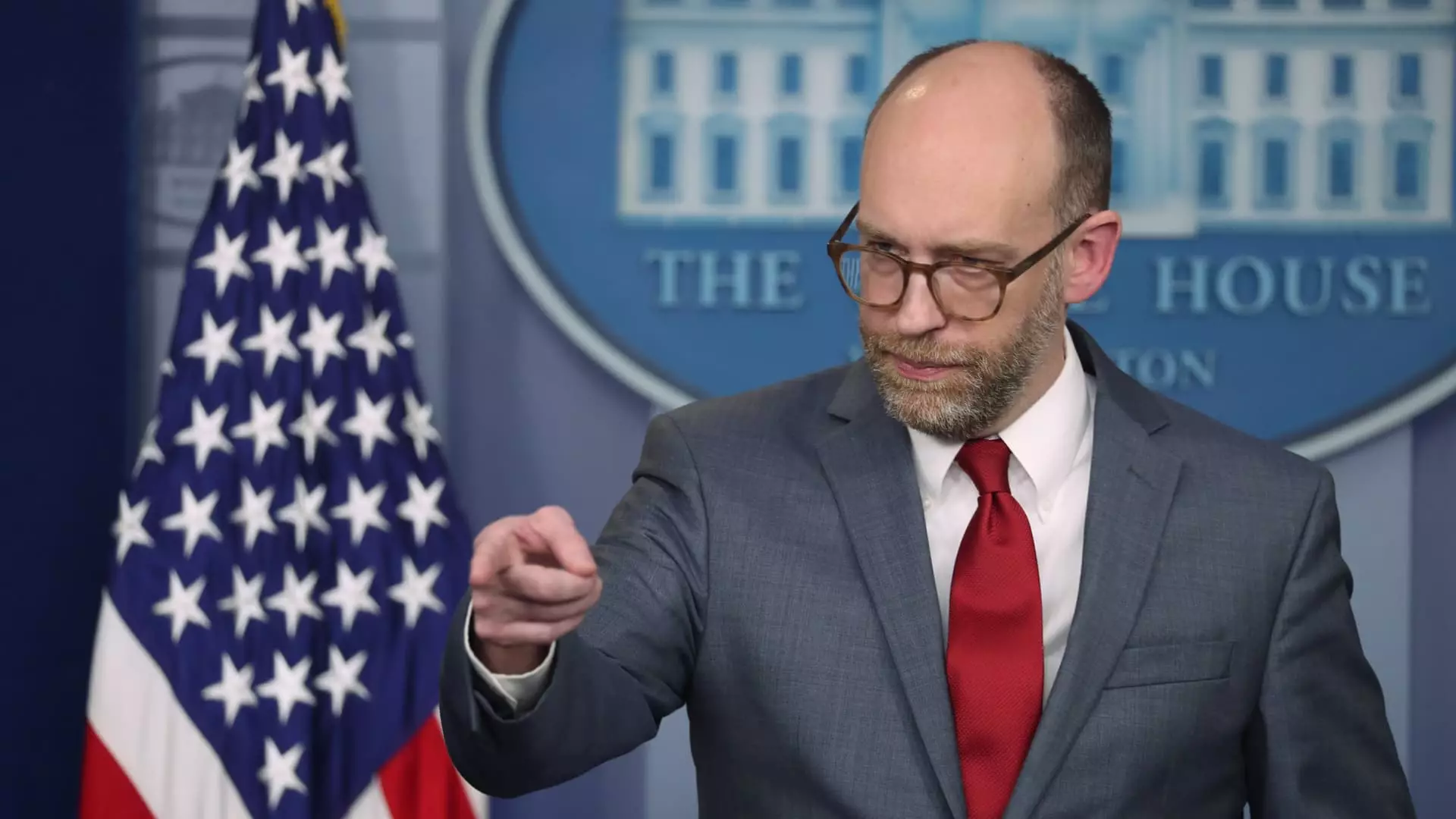The Consumer Financial Protection Bureau (CFPB) has found itself at a precarious crossroads following a series of abrupt operational changes. An internal memo leaked to the press reveals that employees were instructed to work remotely as the agency’s Washington D.C. headquarters will be inoperative until February 14. This notable event is underpinned by a governance shakeup led by recently appointed acting CFPB director Russell Vought. This situation raises critical questions about the future of the CFPB and its mission to safeguard consumers in the financial marketplace.
Russell Vought’s recent directive to suspend nearly all regulatory activities marks a significant shift in the operational trajectory of the CFPB. Following his ascension as the new head of the agency, Vought’s sweeping memorandum has put a temporary halt to essential functions including the oversight of financial institutions. Observers note that this action is not merely a bureaucratic measure but appears to reflect a larger agenda that seeks to destabilize the agency, raised further by Vought’s linkage with Project 2025—a controversial initiative advocating extensive transformations within the federal government.
Elon Musk’s involvement in this unfolding narrative adds another layer of complexity and intrigue. Musk’s call for the elimination of the CFPB, combined with the recent influx of personnel from his DOGE initiative, has sent shockwaves through the financial regulatory community. Sources suggest that these new operatives have unprecedented access to sensitive CFPB data, including employee performance evaluations. This infiltration raises vital concerns regarding privacy and the integrity of consumer protection measures and highlights a potentially corrosive influence on the CFPB’s foundational mission.
The decision to suspend nearly all operations has invoked a palpable sense of anxiety among employees at the CFPB. Whispers of possible administrative leave or layoffs echo through the agency, drawing parallels between this situation and previous attempts by the Trump administration to disrupt other federal offices, such as the U.S. Agency for International Development. With approximately 1,700 employees, the CFPB’s fate hangs in the balance, especially since only a minority of those positions are mandated by law to persist.
Additionally, the uncertainties surrounding job security create an environment ripe for decreased morale and heightened stress levels among staff. Many employees who dedicated their careers to consumer protection are now grappling with the implications of potential mass layoffs, which would, in effect, undermine the fundamental mission of the bureau that was conceived during the aftermath of the 2008 financial crisis.
The looming threat of a diminished CFPB also puts at risk various initiatives that have been designed to protect consumers from the predatory practices of financial institutions. These programs are crucial for maintaining a level playing field in the financial marketplace. Regulatory measures like restrictions on excessive credit card fees and prohibitions on exorbitant overdraft charges are potentially jeopardized by the current uncertainty.
Moreover, a proposed rule aiming to remove $49 billion in medical debts from the credit records of around 15 million Americans hangs in the balance. This directive was intended to alleviate financial burdens on vulnerable populations while simultaneously correcting injustices that have lingered in the credit reporting system for far too long. The combination of regulatory paralysis and grassroots advocacy may spell disaster for the consumer welfare the CFPB was established to defend.
As the CFPB stands on the precipice of a transformative era fueled by political ambition and economic uncertainty, the path forward remains murky. The agency’s value in promoting financial fairness is under siege, and its employees face unprecedented challenges regarding job stability and operational efficacy. The fate of the CFPB will ultimately hinge on public and political engagement, demanding vigilance from consumer advocates and a responsive government that prioritizes effective consumer protection over partisan agendas. Without such commitment, the hard-won progress of the last decade may be at risk, and millions of Americans could find themselves exposed to the very financial exploitation the bureau was designed to combat.

